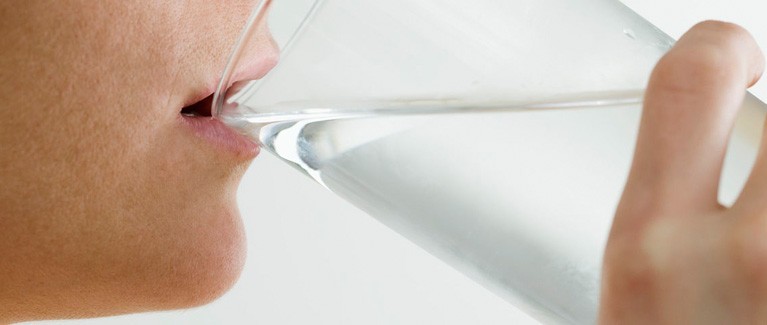Indoors

Water conservation is important and small actions can make a big difference. Implement the below tips to conserve water indoors.
Bathroom
- Flush toilets only when necessary, and never use a toilet as a wastebasket.
- Spend five minutes or less in the shower. Showers use less water than baths.
- Fix all leaky toilets, faucets and pipes. Check for a leaky toilet by putting a few drops of food coloring in the tank. If the color appears in the bowl after 30 minutes, the toilet is leaking. Check the water supply lines under your sink for damp spots or bulges in the hose, which may indicate a leak.
- Install a low-flow showerhead.
- Replace an old toilet with a high-efficiency toilet, which can pay for itself over time in water savings.
- Insulate your water heater and water pipes. Doing so will save energy and also will cut down on the amount of water that goes down the drain while waiting for hot water to flow.
- Catch water in a bucket or watering can while waiting for hot or cold water to run. Use the water on plants.
- Turn off the water while shaving, brushing your teeth and lathering in the shower.
- Shave with a small amount of water in the sink instead of running water.
- Replace or install a low-flow aerator on your bathroom faucet.
Kitchen and Laundry
- Do not let water run while hand-washing dishes.
- Wash vegetables and fruits in a bowl or basin using a vegetable brush instead of letting water run. Use the extra water on plants.
- Soak dishes that need to be pre-rinsed instead of running them under water.
- Scrape dishes instead of rinsing them off before putting them in the dishwasher.
- Chill drinking water in the refrigerator instead of running the faucet until the water is cold.
- Defrost food in the refrigerator, not in a pan of water on the counter or in the sink.
- Run garbage disposals only when necessary. Compost food waste instead.
- Replace or install a low-flow aerator on your kitchen faucet
- Wash only full loads in the washing machine and dishwasher. Try to wash two fewer loads per week.
Turn off water to house when leaving for more than a few days. Plumbing failures can occur at any time, so a lot of water can be wasted if this happens while you are away from your home.